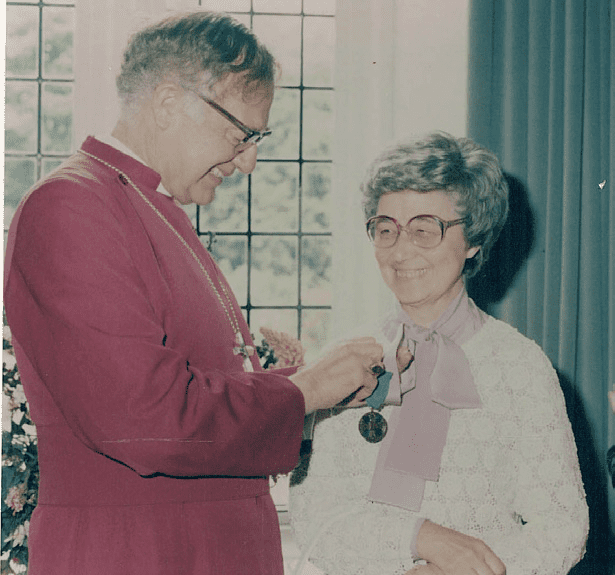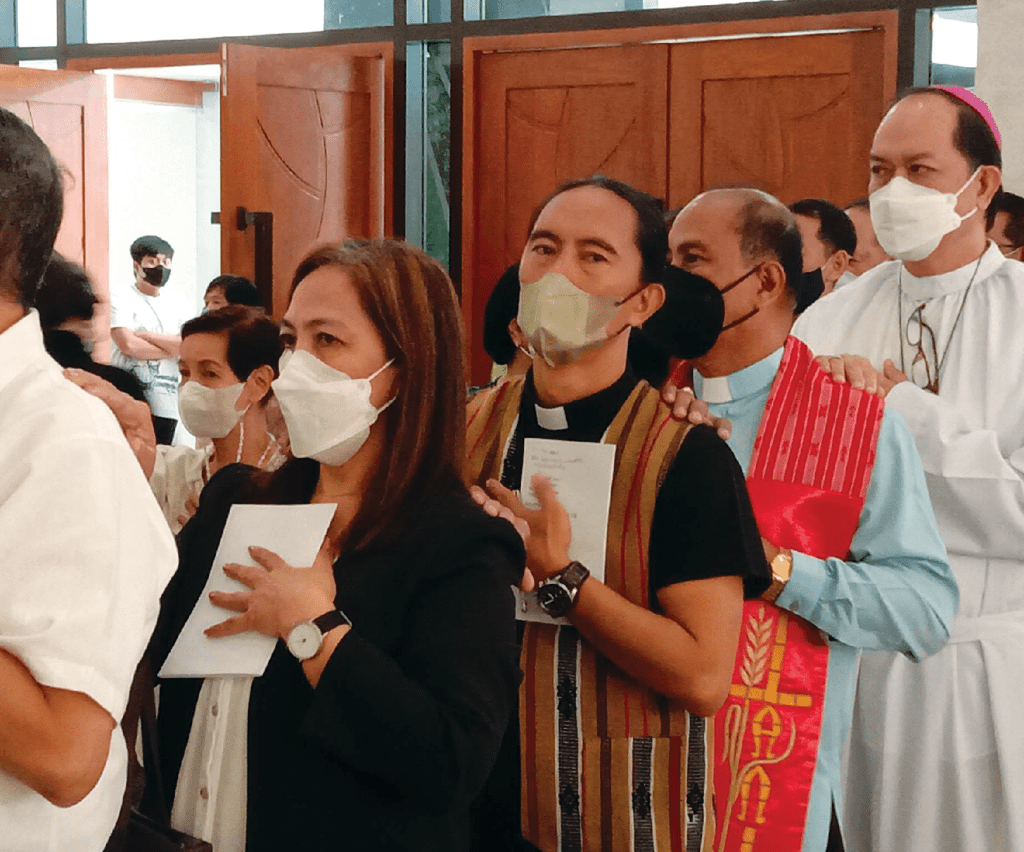
How do we see the situation of our churches at the dawn of the third millennium?
If we Christians take a fresh look at our 2,000-year history, particularly the history of the second millennium, we cannot help but be saddened to see that it has often been a series of conflicts, quarrels, and mutual incomprehension.
Certainly, it was due to circumstances: historical, cultural, political, geographical, and social circumstances. But it was also because among Christians there was a lack of what should be one of their specific unifying features: love.
And so today, as we seek to put right all that was so seriously wrong, we must focus our attention on the source of our common faith, on God who is love, and because he is love, calls us to love as well.
How could we think of loving others if we ourselves do not feel profoundly loved, and if we Christians don’t have in ourselves the certainty that God loves us? Can any good come from our divisions?
In these times, it seems to me that it is really him, God-Love, who, in a certain way, must return and reveal himself anew not only to the heart of each of us Christians, but also to the churches that we compose.
And he loves the churches for the times when, throughout history, they have acted according to God’s design for them. But also — and here we see the wonder of God’s mercy — he loves them even for the times when, because Christians became divided from one another, they did not correspond to his design…
It is this very consoling conviction that made Pope John Paul II in 1994, trusting in the one who draws good out of evil, give the following answer when he was asked, “Why would the Holy Spirit have permitted so many different divisions?”
While recognizing that it could have been because of our sins, he added: “Could it not be that these divisions have also been… a path continually leading the Church to discover the untold wealth contained in Christ’s Gospel and in the redemption accomplished by Christ? Perhaps all this wealth would not have come to light otherwise.”
Greater love
Therefore, we must believe in God, who is love for us and for the churches. But, if God loves us, we cannot remain inactive before such divine goodness. As true children, we must return his love.
During the centuries, each church has, to a degree, become set in its ways, because of the waves of indifference, lack of understanding, and even mutual hatred. What is needed in each church is a supplement of love.
So we need love for the other churches, and mutual love between the churches. The love that leads each church to be a gift for others so that we can foresee in the Church of the future just one truth, but expressed in different ways, seen from different viewpoints, made more beautiful by the variety of interpretations.
Mutual love, however, is truly evangelical, and therefore valid, only if it is practiced in the measure desired by Jesus: He said: “Love one another as I have loved you. Greater love has no one than this: to lay down one’s life for one’s friends” (Jn 15:13).
And Jesus gave his life for us, in his passion and death, where he suffered during the agony in the garden, when he was scourged, and crowned with thorns, and when he was crucified, but he also suffered in that climax of suffering that he expressed in the cry: “My God, my God, why have you forsaken me?” (Mt 27:46), a suffering which, as theologians and mystics affirm, was his greatest trial, his darkest night.
Now, in order to reach the goal of building full communion in mutual love, it seems necessary today to reflect on and mirror our lives, especially in that extreme suffering.
If Jesus was called to overcome the sin of the world and, therefore, the division of people cut off from God and, as a result, divided among themselves, he could only fulfill his mission by experiencing in himself the extreme depths of separation. The separation of God from God, by feeling that he was forsaken by the Father.
But Jesus, by re-abandoning himself to the Father (“Into your hands, I commend my spirit.” Lk 23:46), overcame that immense suffering and brought people once more into the bosom of the Father and into mutual love among themselves.
But if this is so, it is not difficult to see in him, in Jesus forsaken, the brightest star which must throw light on our ecumenical journey.
It seems that efforts in the field of ecumenism will be fruitful in so far as those who dedicate themselves to it see in Jesus crucified and forsaken, who re-abandons himself to the Father, the key to understanding every disunity and to re-establishing unity. They need to find in him the light and the strength, not to stop at the traumas and the cracks of division, but always to go beyond and find a solution, all possible solutions.
Mutual love leads to achieving unity

When unity is lived, it has an effect, and this too is a key point for a living ecumenism. It is the presence of Jesus among people, in the community, gathered in his name. He said, “For where two or three are gathered in my name, I am there among them” (Mt 18:20).
Jesus in the midst between a Catholic and an Evangelical, who love one another, between Anglicans and Orthodox, between an Armenian and a member of the Reformed Church — how much peace it would bring even now, how much light it would shed on a productive ecumenical journey.
Moreover, this presence of Jesus is a gift that also lessens the pain of waiting for the day when we will all share together his presence in the Eucharist.
There must also be a great love for the Holy Spirit, love personified, who binds in unity the persons of the Blessed Trinity and is the bond between the members of the mystical body of Christ.
I also know from experience that if we all live this way, there will be exceptional fruits.
There will be one effect above all. By living together these different aspects of our Christianity, we will realize that we form, so to speak, one Christian people that can be leaven, helping to bring full communion among the Churches.
It will be the living out of another dialogue, in addition to the dialogues of charity and of prayer and the theological one. It will be the dialogue of life, the dialogue of the people of God.
It is a dialogue that is more urgent than ever and necessary, given that, as history shows, little can be achieved in the ecumenical field without the involvement of the people.
It is a dialogue that will enable us to discover more clearly, and more effectively, the rich heritage already shared by Christians, including Baptism, Sacred Scripture, the first Councils, and the Fathers of the Church.
We are eager to see this people, and already here and there, we can have a glimpse of it.
In this moment too, it would certainly be useful to renew our commitment to live this way, as Jesus wants. Actually, the world needs nothing more urgently than a powerful current of love if the third millennium is going to see that long-awaited civilization of love.
Chiara Lubich
From a talk by the author at an Advent prayer service in Augsburg, November 29, 1998




